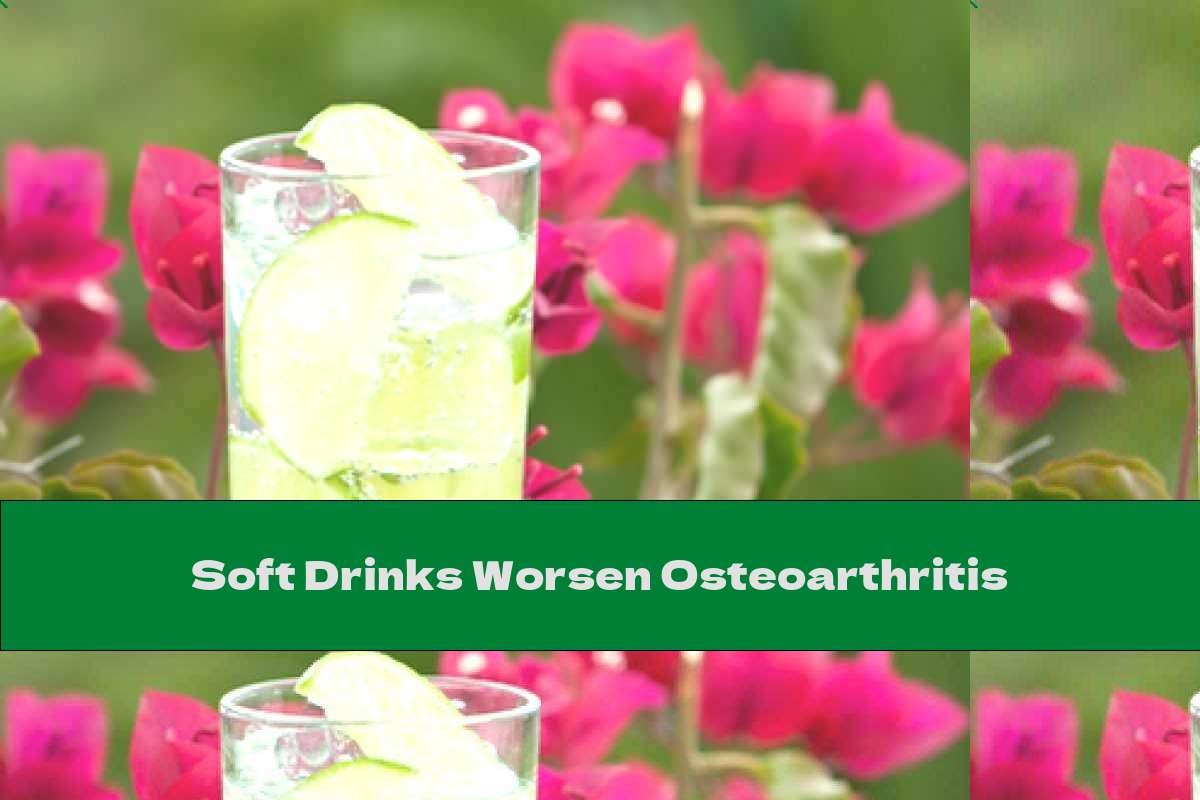Soft Drinks Worsen Osteoarthritis
 Author: Mark Velov
Time for reading: ~1
minutes
Last Updated:
August 08, 2022
Author: Mark Velov
Time for reading: ~1
minutes
Last Updated:
August 08, 2022

In this article, learn more about Soft Drinks Worsen Osteoarthritis. The reasons are still not completely clear ....
Consumption of soft drinks containing sugar is not recommended for men with osteoarthritis of the knee, according to a new study. Scientists have found that drinking soda is associated with disease progression.
However, no such association was found in women in a study of more than 2,000 people with the disease.
The main finding of the study was that regular consumption of carbonated beverages increased the risk of worsening the condition of men with chronic inflammatory disease, said researcher Dr. Bing Lu of Harvard Medical School.
The high calorie content of beverages can contribute to the development of obesity or overweight - a known risk factor for knee osteoarthritis. To the great surprise of the scientists, the connection between the disease and non-alcoholics cannot be explained solely by weight, as the men in the study were not affected by obesity, the team said.
This suggests that soft drinks worsen osteoarthritis of the knee, regardless of the degree of wear and tear of the joints caused by being overweight, explains Dr. Bing Lu.
Some ingredients in sugary sodas, including phosphoric acid, caffeine, as well as colorants and sweeteners, can affect calcium absorption, which is important for bone building and strength, the researchers added.
Experts recommend moderate consumption of soda.
The research team continues with research on the issue.
Other studies have linked soda consumption to cardiovascular disease.
Osteoarthritis is associated with wear and tear of articular cartilage. About 19% of women and 14% of men over the age of 45 have joint pain, stiffness and other symptoms of the disease, the data show.
In addition to obesity and advancing age, other known risk factors for its development are excessive strain and joint injury.
The study was presented at the annual meeting of the American College of Rheumatology in Washington.
Related Articles
- The Ultimate Guide to White Soft Paraffin in Nutrition
- White Soft Paraffin: Benefits, Uses, and Precautions for Nutrition and Skincare
- The Power of White Soft Paraffin in Nutrition: Benefits and Tips
- The Power of White Soft Paraffin in Nutrition: Benefits and Uses
- The Ultimate Guide to White Soft Paraffin in Skincare